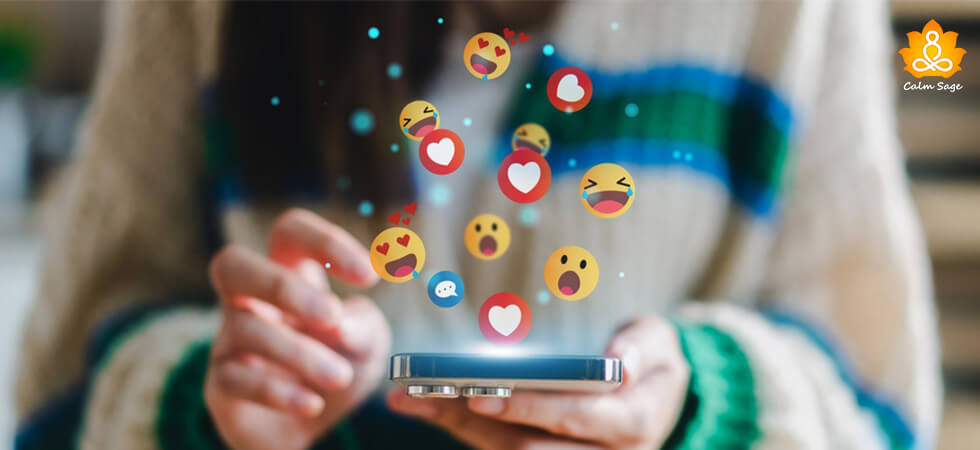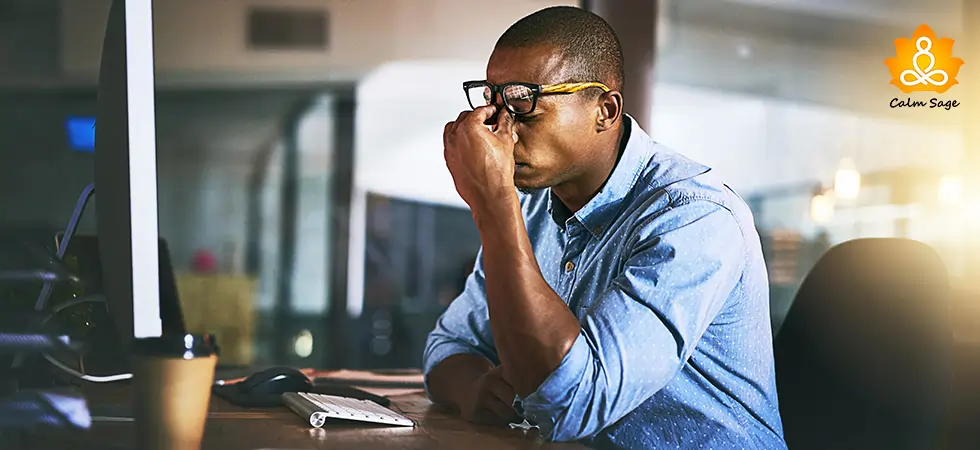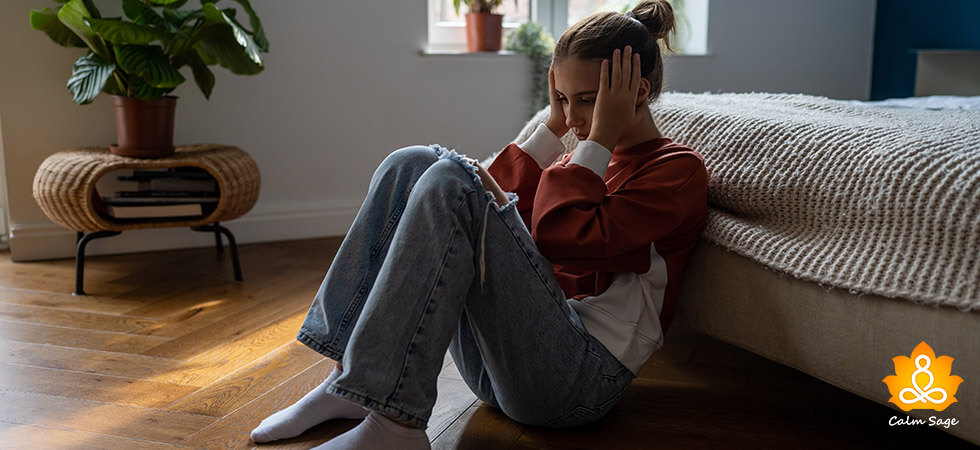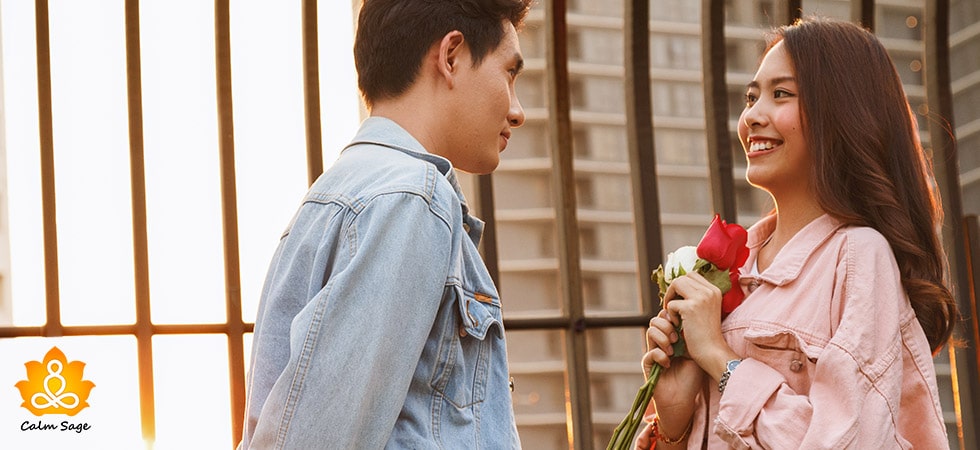Can Social Media Use Be Linked With Social Anxiety Symptoms?

In the last decade, we’ve seen social media revolutionize our way of communicating, sharing knowledge, and connecting with our loved ones across the globe. While social media offers hundreds of benefits, we can’t ignore the concerns it raises about our mental health, especially on social anxiety symptoms.
All of us use social media and I’m not ashamed to admit that social media has become an inseparable part of our lives. I mean, I can assure you that you’re not the only one who wakes up checking their Instagram! How you respond to or use social media can depend on various factors and this includes social anxiety as well.
Social anxiety is an intense fear of social interactions and constant worries of being judged and rejected socially. And social media use can play a role in either intensifying or easing your social anxiety symptoms. So, let’s explore the curious link between social media and social anxiety in this article.
Understanding Social Anxiety
Social anxiety is one of the most common anxiety disorders and causes you to constantly fear and worry that others out there are or will judge you and maybe even reject you. This concern can impact how you act, feel, and even behave in the real world.
In the DSM-5th edition, the criteria to determine social anxiety symptoms include;
- Having an intense fear or anxiety of being judged
- Having an intense fear or anxiety about being in social interactions
- Avoiding social interactions or feeling scared or anxious when interacting socially
- Feeling intense distress related to social or cognitive functioning
Based on these criteria, a mental health professional can diagnose a person with social anxiety disorder or social anxiety.
The Link Between Social Media And Social Anxiety
Social media has become an integral and inseparable part of our lives, enabling us to engage with our loved ones across the world. Social media offers a virtual space for self-expression, sharing experiences, and staying updated about all current events happening around the world. However, with the rise of social media, a rise in mental health concerns has been noted, with social anxiety being the prominent one.
Getting new followers, new likes, and comments can activate the reward system in the brain, causing the brain to release dopamine – the feel-good hormone. This act can subconsciously make you check your social media to see if you have any new updates. If there are no positive reactions to what you post, it can cause you to experience anxiety.
In a study from 2015, it was suggested that changes in dopamine can increase the risk of experiencing anxiety. But what if you already have anxiety? Can social media change your anxiety?
When we talk about social anxiety, the fear of being judged can increase in an environment where it’s easy to compare yourself with others. You can feel social anxiety symptoms when you feel that you can’t “live up” to the expectations or ideals shown on your social media. You can become increasingly anxious about what others think about you. This can lead you to compare your online life with your offline life as well.
The fear of missing out (FOMO) is another factor that can contribute to the link between social media use and social anxiety. As you scroll through your feeds, you may often encounter images and stories of social events and gatherings that you weren’t a part of.
This constant exposure to what you’re missing out on can also intensify feelings of exclusion and isolation, triggering social anxiety symptoms. FOMO can also contribute to a sense of inadequacy that can make you feel like you don’t belong or “fit in” with others, leading to the fear of being judged.
Did you know that some studies suggest that compulsive social media use can cause social media fatigue in teens? FOMO can also be responsible for this social media fatigue and an increased risk of anxiety and depression.
In a 2020 study, it was found that prolonged use of social media can be linked with increased symptoms of social anxiety disorder. These symptoms can only worsen if you use social media passively.
Can Social Media Help Ease Social Anxiety Symptoms?
While there is limited research on the benefits of social media, there have been some studies that suggest some benefits of social media use for people with social anxiety. For some people with social anxiety, it’s easier to interact in the online world rather than face-to-face. It means that they don’t have to fear how others would react to them. However, this can indirectly affect the compulsive use of social media.
In other cases, even if you feel comfortable interacting with people through social media, it could still invoke feelings of being judged.
In a 2014 study, it was found that social support groups on social media can help people who live with social anxiety. It means that if you live with social anxiety disorder, then you can feel supported by other users on social media compared to people who cannot receive the same support.
In a 2016 study, it was found that people with social anxiety who received social support and encouragement through social media groups benefited more when they couldn’t receive the same support offline. However, various studies suggest that social media use can become problematic for people who live with social anxiety if the habit or dependency becomes compulsive.
Tips to Use Social Media When You Have Social Anxiety
It can be challenging to navigate social media when you have social anxiety, but with the right help, you can reap the benefits of social media and feel at ease even when you live with social anxiety. Here are some tips to help you;
1. Set Boundaries
Set clear boundaries for your social media use. Decide how much time you feel comfortable spending online and stick to it. Don’t get caught in a cycle of endless passive scrolling that contributes to feelings of anxiety, FOMO, and inadequacy.
Also Read: Why Respecting Others’ Boundaries is Important (9 Tips To Help You)
2. Be Selective
Choose what content to follow and what to unfollow. Unfollow any accounts that trigger negativity within or make you feel inadequate or less than others. Instead, choose to follow accounts that inspire you, make you feel supported, and promote positivity.
3. Be Mindful
Stay mindful of your responses while using social media. If you notice feelings of anxiety or jealousy, then take a moment to breathe and reflect on why you’re feeling that way. Keep in mind that others often present highlights of their lives online and not their real selves.
4. Unplug From Social Media
Take regular breaks from social media to recharge your mind and emotions. Spend time participating in activities and hobbies that bring you joy and help you relax. Use these small breaks to connect with yourself and the offline world around you.
5. Avoid Passive Scrolling
Rather than passively scrolling, engage in meaningful social interactions. Comment thoughtfully on the posts you see, join healthy discussions, and connect with groups that share your interests. Build genuine connections that can provide a positive and supportive online community and platform to you.
6. Remember To Connect Offline Too
Don’t let social media replace your real-life social interactions. Try to create and maintain relationships offline, as face-to-face interactions can bring a different kind of support, encouragement, and connection.
Wrapping Up…
The link between social media and social anxiety is a complicated one. While social media can offer valuable connections and ways of self-expression, it can also present some challenges that can affect our mental health, especially social anxiety. Social comparison, feelings of missing out on social events, and exposure to negativity through passive scrolling can all intensify social anxiety symptoms.
So, can social media cause social anxiety? Who can say? However, one thing is clear; social media and how it impacts your mental health depends on your use of the platforms. For some, social media can offer a positive and supportive space while for others, it can offer other social struggles.
Social media can be an opportunity for growth when you choose to use it right. Make sure you learn to strike a balance between online and offline social interactions to keep your social anxiety in check.
I hope this article helped you understand the link between social media and social anxiety and how you can perfectly balance online and offline social interactions without worsening your social anxiety symptoms.
Take Care and Stay Safe!




















